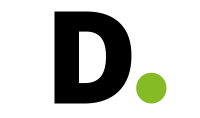AI-powered skill assessment platforms have revolutionized hiring by enabling companies to evaluate candidates’ abilities in real time, reduce bias, and make data-driven decisions. These platforms leverage artificial intelligence and machine learning to automate evaluations, simulate real-world scenarios, and predict job performance more accurately than traditional methods. Below are 10 of the top AI-powered skill assessment platforms for hiring in 2025.
1. Codility
Codility is an AI-powered assessment platform built specifically for hiring developers. It allows recruiters and hiring managers to evaluate coding skills using real-life tasks that mimic on-the-job challenges. Codility’s CodeLive and CodeCheck modules offer a seamless experience for conducting live technical interviews and remote coding assessments. The platform supports various programming languages and provides detailed reports on code quality, performance, and problem-solving approaches.
The AI engine behind Codility automatically detects plagiarism and analyzes code efficiency, helping recruiters eliminate unqualified candidates early in the hiring process. Companies use Codility not only for technical hiring but also to streamline the candidate journey, reduce time-to-hire, and ensure a fair and objective evaluation process. With customizable assessments and integrations with ATS platforms, Codility is a favorite among tech recruiters.
2. HackerRank
HackerRank offers a robust suite of AI-powered tools for assessing developers across a range of roles including frontend, backend, full-stack, and data science positions. Its pre-built tests and coding environments replicate real-world challenges, and the AI evaluates code for accuracy, speed, and style. Recruiters benefit from its detailed scoring metrics and benchmarking against global talent pools, ensuring they attract and retain top talent.
Beyond coding, HackerRank’s AI adapts to candidates’ responses, offering dynamic question sets that scale in difficulty. The platform also enables live technical interviews with built-in code editors, audio/video integration, and whiteboarding tools. It supports DEI goals by anonymizing candidates and removing unconscious bias from hiring decisions. HackerRank is widely adopted by tech giants and fast-growing startups alike.
3. Pymetrics
Pymetrics takes a neuroscience-based approach to skill and trait assessment. Its AI platform uses a series of gamified assessments to evaluate cognitive and emotional traits such as attention, risk tolerance, and decision-making. Based on the results, the AI matches candidates to roles where they’re most likely to thrive, all while promoting inclusive hiring practices.
What makes Pymetrics unique is its focus on potential over experience. Instead of testing hard skills, it identifies behavioral patterns aligned with success in specific roles or company cultures. The platform’s algorithms are regularly audited to ensure fairness and transparency, making it a trusted choice for organizations aiming to improve diversity without compromising performance.
4. Harver
Harver is an end-to-end, AI-powered pre-employment assessment platform designed to streamline volume hiring. It evaluates candidates using realistic job previews, behavioral tests, cognitive ability tests, and situational judgment tests. The AI engine analyzes data points to generate a predictive fit score for each candidate, helping recruiters prioritize top talent efficiently.
The platform’s biggest strength lies in its ability to customize assessments based on role and industry. Harver helps reduce turnover by matching candidates to roles where they’re likely to succeed. It also integrates with major ATS solutions, automates communication, and offers insights through customizable dashboards. Harver is widely used in retail, hospitality, and customer service sectors.
5. Vervoe
Vervoe is a skills-based hiring platform that uses AI to automatically grade candidate responses, allowing recruiters to focus on top performers without manual screening. The assessments are designed to mimic real-world tasks and include simulations, video responses, and written tasks. Vervoe’s machine learning model learns from evaluator preferences over time to enhance its scoring accuracy.
The platform emphasizes merit-based hiring by ranking candidates based on how well they can perform tasks, not how well they present themselves on resumes. It supports a wide range of industries including sales, customer support, marketing, and software development. Vervoe’s user-friendly interface and detailed analytics make it an excellent choice for companies looking to improve both the speed and quality of hiring.
6. Toggl Hire
Toggl Hire offers skills-first hiring through automated, AI-powered assessments tailored for various job roles. It features a large test library across different domains, enabling recruiters to create customized quizzes that measure practical skills. The platform’s AI engine evaluates answers in real time and generates easy-to-read candidate scorecards.
Designed for busy hiring teams, Toggl Hire simplifies screening with one-click test invitations, smart rankings, and anti-cheating tools. It places a strong emphasis on candidate experience, providing intuitive interfaces and instant feedback. Toggl Hire is particularly popular among startups and SMEs that value efficiency and transparency in the hiring process.
7. TestGorilla
TestGorilla provides a comprehensive suite of over 300 pre-employment tests, covering cognitive ability, personality, technical skills, and language proficiency. Its AI engine analyzes responses to give hiring teams data-driven recommendations and predictive scores. Tests are customizable, timed, and come with anti-cheating features such as webcam monitoring and screen tracking.
The platform offers an intuitive dashboard where hiring teams can compare candidates, collaborate on evaluations, and make decisions faster. It reduces unconscious bias through anonymous assessments and consistent scoring. TestGorilla’s versatility makes it a solid fit for both technical and non-technical roles, and its scalability supports organizations of all sizes.
8. HireVue
HireVue is best known for its AI-driven video interviewing platform, but it also offers skill assessments that evaluate coding, cognitive ability, and job readiness. The platform combines video interviews with AI analysis, scanning for keywords, facial expressions, tone, and more to assess candidate fit and engagement. It provides structured scoring, helping reduce bias in the interview process.
HireVue’s skill assessments include real-time coding challenges and game-based cognitive tests. These are especially useful for identifying top talent early in the funnel. With integrations into popular ATS and CRM systems, HireVue streamlines the recruitment process while maintaining a high standard of candidate evaluation. It’s used by enterprises looking to scale hiring without sacrificing quality.
9. iMocha
iMocha offers AI-powered assessments for a wide range of skills—from IT and engineering to finance, sales, and business roles. With over 2,500 ready-to-use skill assessments and a question library tailored to 30+ job roles, the platform helps hiring teams test both technical and soft skills. Its AI algorithm ranks candidates based on skill scores and recommends top matches.
A standout feature is iMocha’s Live Coding Interview, where recruiters can conduct real-time evaluations within an integrated coding environment. It also supports advanced proctoring tools to maintain test integrity. For companies looking to hire across multiple departments, iMocha delivers a scalable and customizable solution for skill validation at every stage of hiring.
10. Mercer | Mettl
Mercer | Mettl offers enterprise-grade assessments powered by AI and psychometrics. Its platform helps companies evaluate job-specific skills, cognitive abilities, and personality traits. The AI engine analyzes performance patterns and behavioral traits to provide detailed candidate profiles, aiding in both selection and development.
The platform supports remote proctoring and robust anti-cheating features like facial recognition and browser lockdowns. Mercer | Mettl’s customizable assessments can be aligned to specific job roles and organizational requirements. It is widely adopted by global enterprises for campus hiring, lateral hiring, and workforce development, making it one of the most trusted names in the assessment landscape.
What to Look for in an AI Skill Assessment Platform
Real-World Simulations vs. Generic Quizzes
Choose platforms that offer role-specific, real-world simulations instead of generic multiple-choice quizzes. Simulations provide a realistic preview of how candidates will perform on the job, making it easier to assess practical skills like problem-solving, communication, and technical execution.
Automated Scoring and Bias Reduction
Look for tools with AI-driven scoring systems that ensure consistency and eliminate human subjectivity. Platforms that anonymize candidates and use standardized evaluation methods help reduce bias, support fair hiring practices, and promote diversity across your workforce.
Customization, Integrations, and Scalability
Select a platform that allows you to tailor assessments to specific roles, integrates seamlessly with your ATS or HR tools, and scales as your hiring needs grow. Flexibility and interoperability are essential for streamlining workflows and maintaining efficiency as your team expands.
Conclusion
In a hiring landscape increasingly focused on agility, diversity, and skill-based evaluation, AI-powered skill assessment platforms have become indispensable. Whether you’re hiring a junior developer, a customer success rep, or a data scientist, these platforms offer scalable, objective, and bias-free solutions that improve hiring outcomes. By leveraging one or more of the tools listed above, businesses can build smarter teams faster—and with greater confidence in the quality of their hires.











